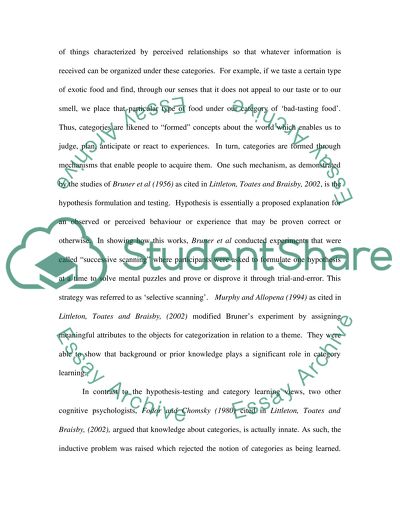Cite this document
(“Learning from the Cognitive and the Sociocultural Perspective Research Proposal”, n.d.)
Learning from the Cognitive and the Sociocultural Perspective Research Proposal. Retrieved from https://studentshare.org/sociology/1507666-psychology-essay-on-learning
Learning from the Cognitive and the Sociocultural Perspective Research Proposal. Retrieved from https://studentshare.org/sociology/1507666-psychology-essay-on-learning
(Learning from the Cognitive and the Sociocultural Perspective Research Proposal)
Learning from the Cognitive and the Sociocultural Perspective Research Proposal. https://studentshare.org/sociology/1507666-psychology-essay-on-learning.
Learning from the Cognitive and the Sociocultural Perspective Research Proposal. https://studentshare.org/sociology/1507666-psychology-essay-on-learning.
“Learning from the Cognitive and the Sociocultural Perspective Research Proposal”, n.d. https://studentshare.org/sociology/1507666-psychology-essay-on-learning.


